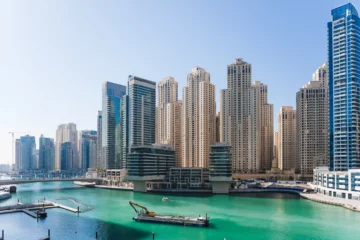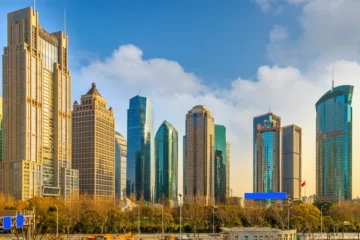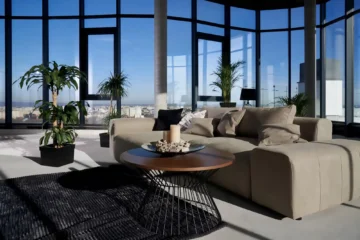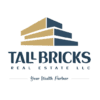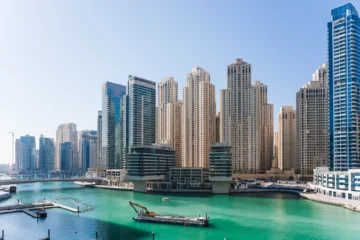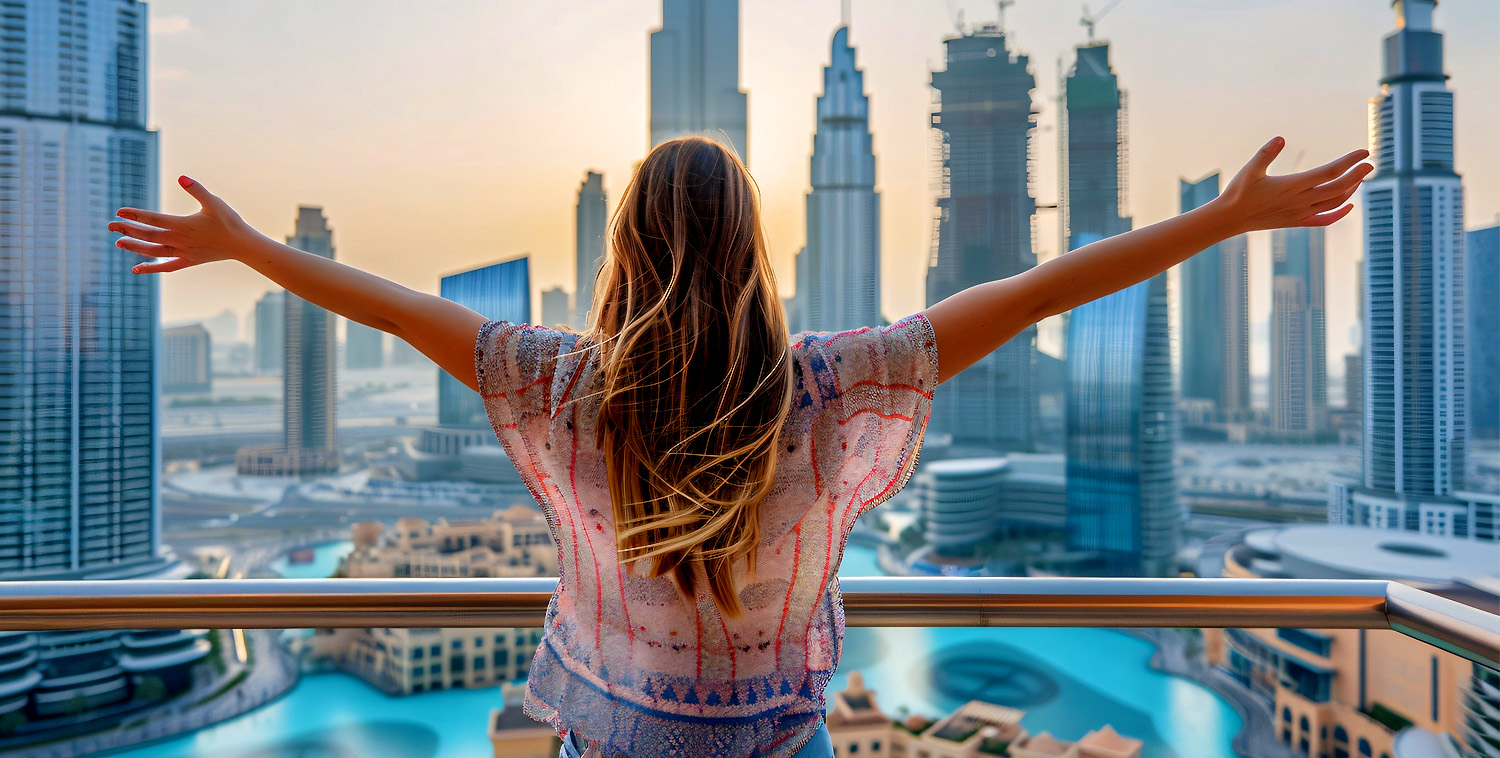
Top real estate trends in Dubai that are shaping the market
1. Increased Demand for Luxury Properties
High-End Residential Demand:
- Dubai’s luxury real estate market has been booming, driven by high-net-worth individuals (HNIs) and ultra-high-net-worth individuals (UHNWIs) relocating to the city.
- Areas like Palm Jumeirah, Dubai Hills Estate, Downtown Dubai, and Jumeirah Bay Island are seeing increased demand for luxury villas, penthouses, and beachfront properties.
- Developers are focusing on high-end projects with exclusive amenities like private pools, rooftop terraces, and smart home technology to attract this affluent segment.
Trend Insight: “Dubai’s status as a global hub for business, tourism, and lifestyle is driving increased interest in luxury properties from foreign investors and residents alike.”
2. Rise of Off-Plan Properties
Investment in Future Developments:
- Off-plan properties (properties that are sold before they are completed) continue to be a major trend in Dubai, especially for investors seeking capital appreciation.
- Developers are offering flexible payment plans to attract buyers, often with incentives like post-handover payment plans and reduced down payments.
- Popular off-plan projects include areas like Dubai Creek Harbour, Dubai Marina, and Jumeirah Village Circle.
Trend Insight: “Off-plan investments remain a key strategy for buyers seeking long-term growth and rental yield potential in emerging areas.”
3. Increased Interest in Green and Sustainable Communities
Focus on Sustainability:
- As environmental awareness grows, more buyers are looking for sustainable, eco-friendly homes in Dubai. Developers are focusing on creating green communities with energy-efficient systems, solar panels, and eco-friendly designs.
- Dubai Sustainable City and Masdar City are examples of communities offering sustainable living, attracting environmentally conscious residents.
- This trend is likely to grow, driven by government initiatives like the Dubai Clean Energy Strategy 2050, which aims to make Dubai a global hub for clean energy.
Trend Insight: “Buyers are increasingly looking for eco-conscious developments that align with global sustainability trends and reduce environmental impact.”
4. Shift Toward Larger Living Spaces
Demand for Bigger Homes:
- The shift toward remote working and flexible office environments has led to increased demand for larger homes, particularly villas and townhouses with extra rooms that can be used as home offices.
- Buyers are prioritizing homes with outdoor spaces, like gardens, terraces, and balconies, which offer an improved quality of life, particularly in suburban communities like Arabian Ranches, Mudon, and Dubai Hills.
Trend Insight: “With more people working from home, demand for properties with additional space and outdoor areas has surged, especially in family-friendly communities.”
5. Growing Interest in Short-Term Rentals
Rise of Holiday Homes:
- Dubai has become a popular destination for holiday homes and short-term rentals, driven by the city’s status as a top global tourist destination and the upcoming Dubai Expo 2020.
- Platforms like Airbnb have fueled the growth of short-term rentals, with investors purchasing properties in areas like Downtown Dubai and Palm Jumeirah specifically for short-term lease potential.
- Investors are capitalizing on high tourist demand, with Dubai offering competitive rental yields compared to other global cities.
Trend Insight: “Short-term rentals offer high rental yields and are a popular choice for investors looking to capitalize on Dubai’s robust tourism industry.”
6. Property Technology (PropTech) Innovation
Smart Homes and Virtual Tours:
- PropTech is revolutionizing Dubai’s real estate market. Buyers are increasingly relying on virtual tours, online listings, and AI-driven property recommendations to make purchase decisions.
- Developers are integrating smart home technologies, including smart thermostats, automated lighting, and security systems, into new builds to attract tech-savvy buyers.
- Blockchain technology is also making inroads, allowing more secure, transparent property transactions and digital contracts.
Trend Insight: “The integration of technology into real estate transactions and smart home features is becoming a major selling point for properties, especially for international buyers.”
7. Increase in Mortgage Availability
Flexible Financing Options:
- The Dubai government has introduced initiatives to make mortgages more accessible, including increasing the loan-to-value (LTV) ratio for first-time buyers, enabling more residents to enter the market.
- Mortgage interest rates have remained relatively low, further encouraging both end-users and investors to finance property purchases through mortgages.
- Banks and financial institutions are offering more flexible loan terms, making it easier for middle-income buyers to secure financing.
Trend Insight: “Easier access to financing and low mortgage rates are encouraging more people to buy properties, especially first-time homebuyers.”
8. Surge in Digital Real Estate Platforms
Online Property Marketplaces:
- Digital real estate platforms have become increasingly important in Dubai. Buyers and investors are using websites and apps to search, compare, and purchase properties online.
- These platforms offer virtual property tours, detailed property data, and market insights, giving buyers and investors more control and transparency over their real estate decisions.
- This trend is expected to grow further as online platforms like Property Finder, Bayut, and Dubizzle enhance user experiences with improved AI and data integration.
Trend Insight: “Digital platforms are making property searches and transactions more efficient, leading to greater transparency and faster decision-making.”
9. Emergence of Co-Living and Co-Working Spaces
New Lifestyle Concepts:
- The concept of co-living and co-working spaces is gaining traction in Dubai. Co-living spaces cater to younger professionals looking for affordable, community-focused living environments, while co-working spaces appeal to entrepreneurs and freelancers seeking flexible office spaces.
- Developments like KOA Canvas and Hive Coliv are examples of co-living spaces in Dubai, combining residential and community amenities with shared working environments.
Trend Insight: “Co-living and co-working spaces are meeting the demands of a new generation of residents who prioritize flexibility, affordability, and a sense of community.”
10. Foreign Investment Driving the Market
Attractive Destination for International Buyers:
- Foreign investment in Dubai’s real estate market continues to rise, especially from investors from India, China, Russia, and Europe.
- The Dubai Golden Visa and investor visa programs have made it easier for foreign investors to purchase property and secure long-term residency in the UAE.
- The absence of property taxes and high rental yields makes Dubai an attractive destination for international real estate investors looking for safe investments and lucrative returns.
Trend Insight: “Dubai’s property market remains a top destination for international investors, offering tax-free investment opportunities and high rental yields.”
Conclusion
Dubai’s real estate market is driven by luxury demand, sustainability initiatives, technology integration, and increasing interest from both local and international investors. By keeping an eye on these trends, property developers, investors, and buyers can make informed decisions and capitalize on the market’s evolving opportunities.

